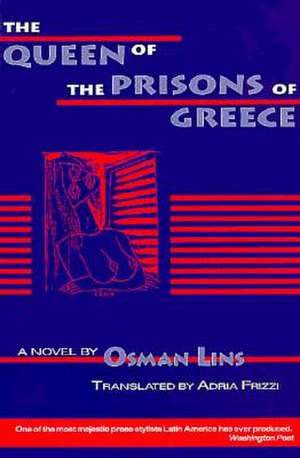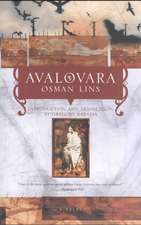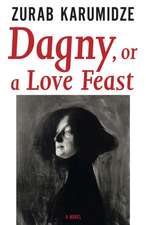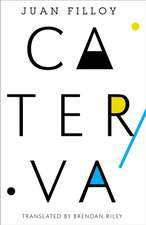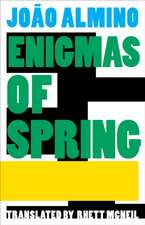The Queen of the Prisons of Greece: World Literature Series
Autor Osman Lins, Adria Frizzien Limba Engleză Paperback – 31 dec 1994
Preț: 72.74 lei
Nou
Puncte Express: 109
Preț estimativ în valută:
13.92€ • 14.53$ • 11.52£
13.92€ • 14.53$ • 11.52£
Carte disponibilă
Livrare economică 14-28 martie
Preluare comenzi: 021 569.72.76
Specificații
ISBN-13: 9781564780560
ISBN-10: 1564780562
Pagini: 187
Dimensiuni: 141 x 215 x 14 mm
Greutate: 0.25 kg
Editura: Dalkey Archive Press
Colecția Dalkey Archive Press
Seria World Literature Series
ISBN-10: 1564780562
Pagini: 187
Dimensiuni: 141 x 215 x 14 mm
Greutate: 0.25 kg
Editura: Dalkey Archive Press
Colecția Dalkey Archive Press
Seria World Literature Series
Textul de pe ultima copertă
This is the final novel of one of the most innovative, comic Brazilian writers of this century. It takes the form of an anonymous high school science teacher's journal about an unpublished novel written by his deceased lover, a young woman named Julia Marquezim Enone. Her novel's central character, Maria da Franca, is a destitute and mentally unstable woman at odds with the Brazilian social welfare system, from which she is trying to claim benefits for time spent in a psychiatric hospital. The journal represents the science teacher's attempt to understand Julia's novel and, the process, Julia herself and the relationship they once shared. Rather than providing him with comfort and a better understanding of his beloved, the teacher's explorations create an ever-widening circle of questions and fears about himself, her, and finally any attempt to understand anything about anyone. But the narrator's failures become the reader's comic delights.
